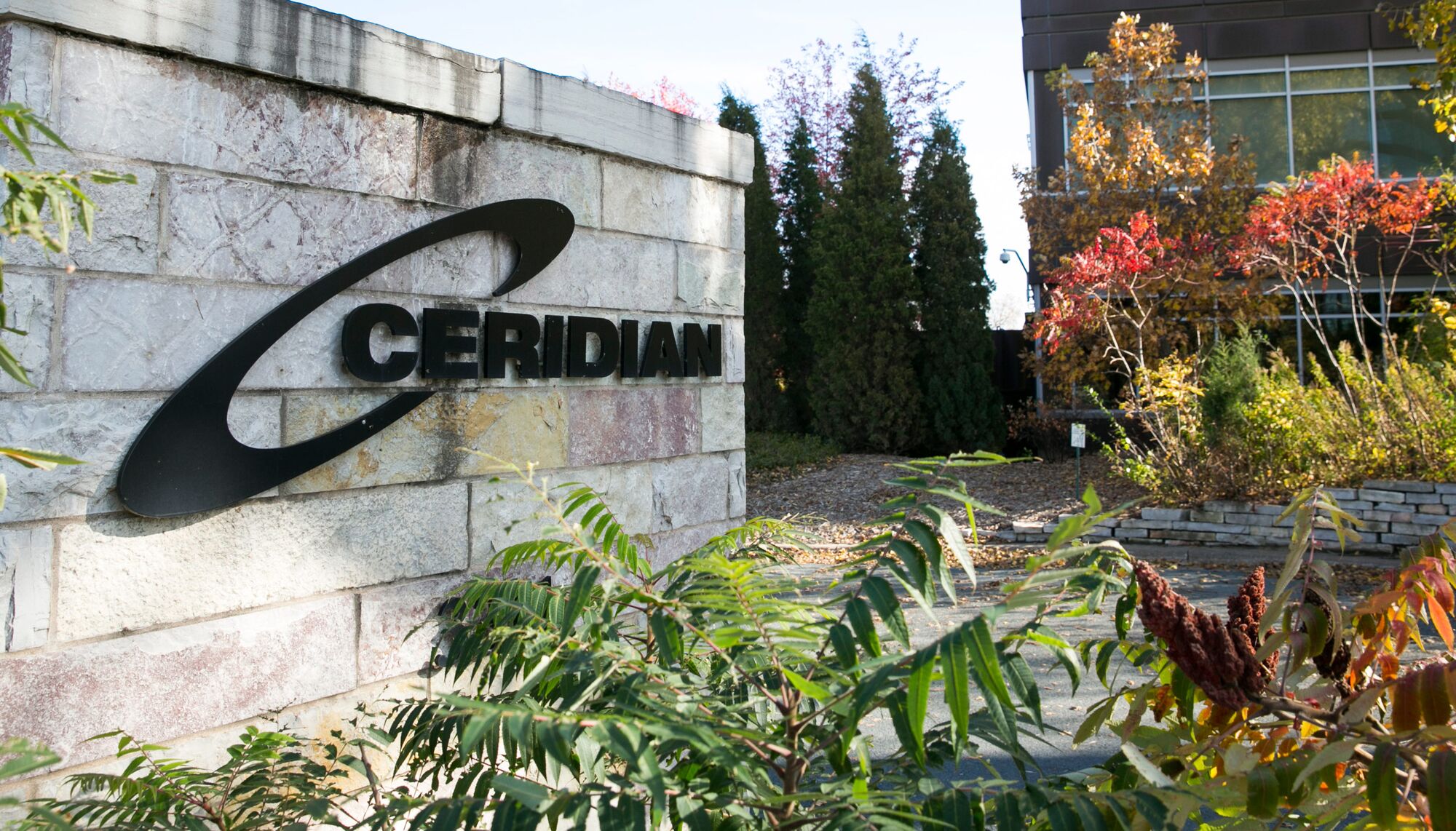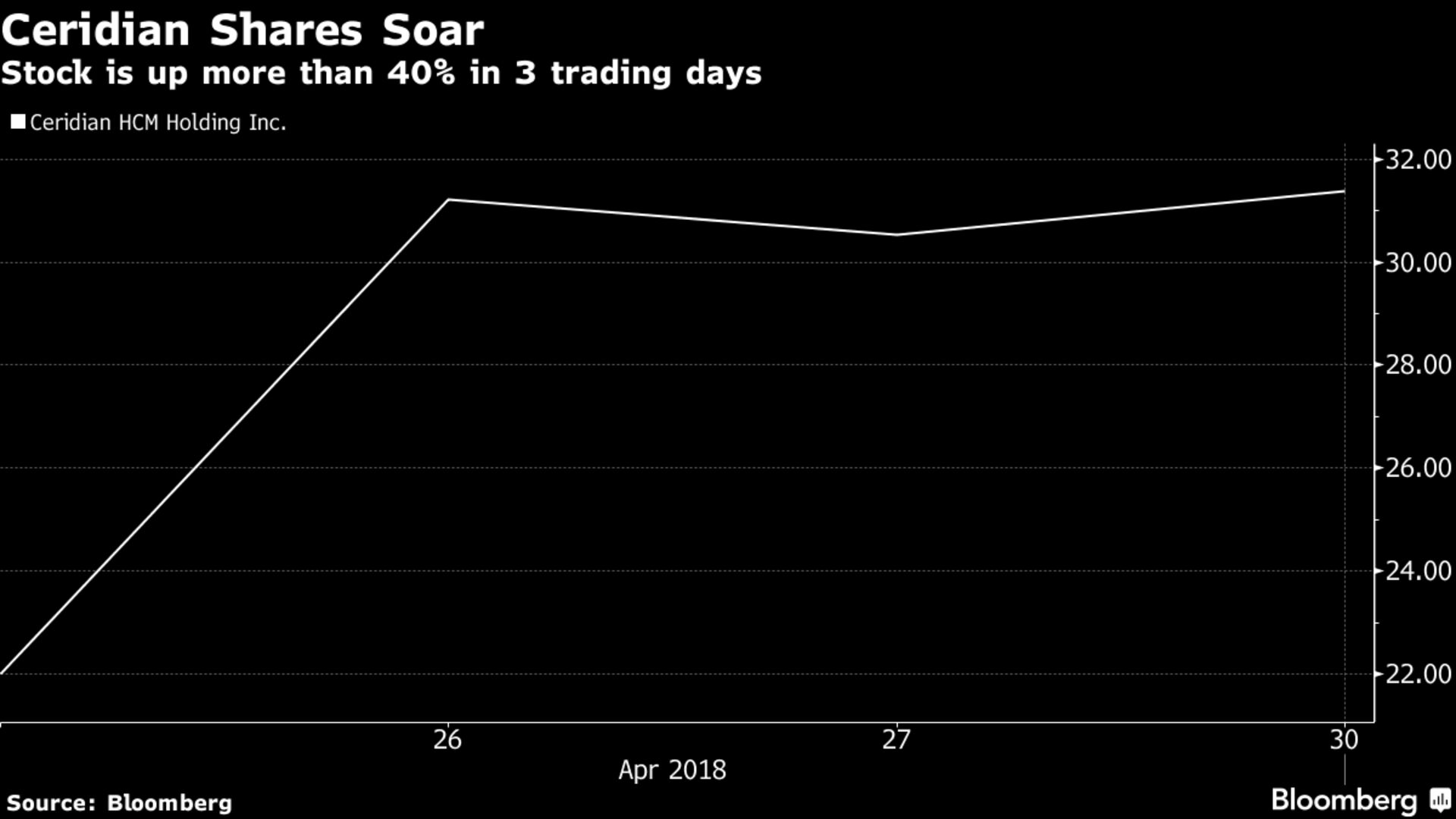Ceridian Sees ‘Gig’ Economy as Next Big Growth Driver After IPO
-
Company’s stock has gained more then 40% in three trading days
-
Dayforce HR cloud platform has seen growth of 60% over 5 years

Ceridian HCM Holding Inc. soared in its first days of trading as the payroll company sees rising demand for its software from more employees entering the so-called gig economy of temporary or contract work.

Ossip, who founded Canadian software maker Dayforce before it was acquired by Ceridian in 2012, said he chose the dual listing as a recognition of Dayforce’s Canadian roots and the more robust tech sector in the U.S.
Expansion hasn’t been an issue for the Dayforce platform, which has seen a compound annual growth rate of more than 60 percent over the past five years, he said. Dayforce counts BlackRock Inc., Trader Joe’s Co. and the Denver Broncos among its customers.
This potential mattered more to investors than the recent increase in market volatility, particularly in tech stocks, Ossip said.
“It’s something that we watched very closely, but we were confident that the fundamentals of the business were very strong and that we’d be successful regardless” of volatility.
Ceridian, owned 51 percent by Thomas H. Lee Partners after the IPO, manages HR functions, payroll and benefits for about 2.5 million active users.

Leave a Comment